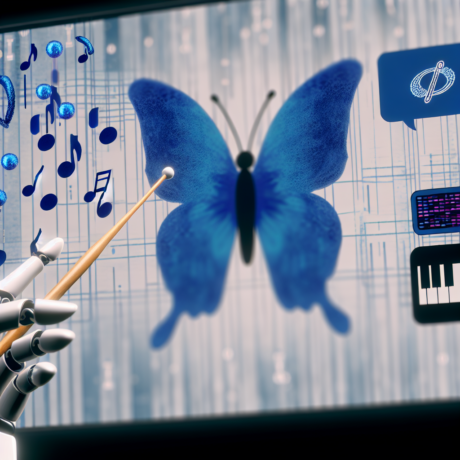
How AI is Transforming the Future of Music Creation
The Intersection of Technology and Creativity
In recent years, the realm of music creation has undergone a seismic transformation, driven in large part by advancements in artificial intelligence (AI). This cutting-edge technology is reshaping how music is composed, mixed, and even consumed, offering a blend of creativity and innovation that is pushing the boundaries of traditional music production.
The Role of AI in Music
AI’s influence on music is as expansive as it is profound. By leveraging complex algorithms and machine learning models, AI systems can analyze vast datasets of existing music to identify patterns and genres, enabling them to create entirely new compositions. Here are a few key areas where AI is making an impact:
- Compositional Assistance: AI has become a creative partner, aiding musicians and composers in generating new musical ideas effortlessly. Tools and applications powered by AI can suggest melodies, harmonies, and even lyrics, providing a springboard for human creativity.
- Music Mixing and Mastering: AI-driven platforms offer automated mixing and mastering solutions, which save time and deliver professional-grade audio quality. These technologies empower artists at all levels to produce polished tracks without the need for expensive studio sessions.
- Personalized Music Recommendations: By analyzing listeners’ preferences and habits, AI algorithms curate personalized playlists, enhancing user experience and helping artists reach a broader audience.
The Advantages of AI in Music Creation
AI’s integration into the music industry comes with numerous advantages that resonate with creators and consumers alike:
- Accessibility: With AI, music production becomes more accessible to aspiring musicians who may lack the resources or skills to create and produce music. This has democratized music creation, leading to a more diverse and vibrant musical landscape.
- Speed and Efficiency: AI tools expedite workflows by handling time-consuming tasks, enabling artists to focus more on the creative aspects of their work.
- Innovation: By generating novel compositions and soundscapes, AI fosters experimentation and innovation, leading to new genres and sonic experiences.
Challenges and Considerations
While AI presents numerous opportunities for music creation, it also raises important questions and challenges. There is ongoing debate about the authenticity and originality of AI-composed music. Additionally, there are concerns about whether AI might diminish the value of human creativity and artistry.
Ethical considerations are also at play. As AI continues to evolve, it is crucial for creators, developers, and policymakers to ensure that its application respects copyright laws and fairly compensates artists for their contributions.
The Future of AI in Music
The fusion of AI and music is still in its nascent stages, but its trajectory is promising. As technology continues to advance, AI will likely become an even more integral component of music creation and consumption. The way we create, experience, and share music is likely to evolve, potentially leading to unprecedented forms of artistic expression.
In conclusion, AI is not just a tool but a transformative force in the music industry. By augmenting human creativity, enhancing production efficiency, and providing new avenues for musical exploration, AI is poised to redefine the future of music creation, offering an exciting landscape for artists and music lovers worldwide.





